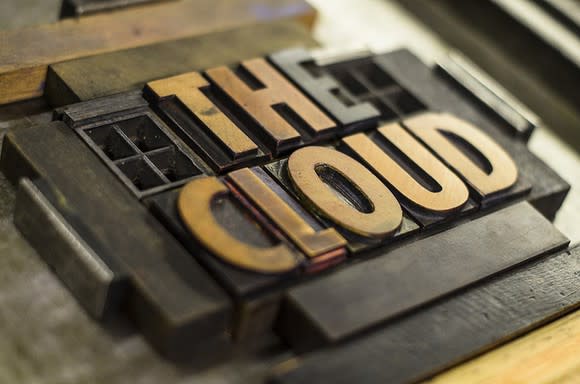These 2 Tech Stocks Are Ridiculously Cheap
The tech sector is easily the top-performing group in the past year climbing 36%, well above second place healthcare's 21% gain. However, for a variety of reasons including business transitions and out-of-favor industries, there are tech stocks that remain woefully undervalued.
Two ridiculously cheap stocks that offer a world of upside, along with industry-leading dividends, are HP (NYSE: HPQ) and Cisco (NASDAQ: CSCO). But don't let their bargain-basement prices scare you -- both HP and Cisco have outstanding upsides ahead of them.

Image source: HP.
Long live the PC
It's difficult to imagine with its stock up 43% in 2017 that HP could possibly be cheap. But at just 15 times trailing earnings, HP shares are well below its peers' average of nearly 23 times earnings. HP is also a bargain by most every other metric, and its 2.5% dividend yield is well above its competitors' 1.5% average.
Much of the negativity surrounding HP is its focus on PCs and what was an under-performing printing division. It's become apparent that the PC market is alive and kicking, at least for HP. Gaining market share each quarter has become a recurring theme and has HP at the top of the global PC heap. Last quarter's $13.9 billion in total revenue was an 11% improvement compared to a year ago, and HP's $0.39 in per-share earnings was an impressive 30% increase.
Better still, HP's strong top and bottom lines were buoyed by growth from virtually every segment within its two divisions, including the printing unit. PC-related sales climbed 13% year over year to $9.1 billion led by a 16% rise in tablet sales. A year ago, printing was the bane of HP's dragging total revenue and earnings per share (EPS), but no longer.
Similar to PCs, every segment within HP's printing division rose last quarter. Supply revenue, once the dog of the printing unit, climbed 10% to $3.1 billion to end HP's fiscal 2017. Overall, printing sales rose 7% to $4.88 billion. A year ago, HP reported a 10% drop in supply sales and an 8% decline in the printing division. With HP's $1.05 billion deal for Samsung's (NASDAQOTH: SSNLF) printing assets complete, and the burgeoning 3D market, printing will continue adding to HP's revenue and EPS growth.

Image source: Getty Images.
Give us a moment
Much of the talk following Cisco's recent fiscal 2018's first-quarter earnings was about its guidance for the current quarter of revenue growth of 1% to 3%. That may not sound like much, but it will be the first quarter in a year that Cisco has enjoyed a rising top line. Though its stock is up 23% year to date, nearly half of that -- 10.4% -- has come since it shared its guidance on Nov. 15.
Despite its hike in share price, at 20 times earnings, Cisco is cheap compared to its peer average of 36 times earnings. Looking ahead, Cisco stock is valued at a mere 15.5 times expected earnings. There's also Cisco's strong dividend, which, at 3%, handily outpaces its peer average of a modest 2.2% yield.
The expected return to growth wasn't the only good news Cisco reported. The push to lead the cloud Infrastructure-as-a-Service (IaaS) market in conjunction with Cisco's software initiative boosted its all-important recurring revenue foundation.
Recurring revenue was up three percentage points to 32% last quarter. That translates to $3.87 billion of Cisco's $12.1 billion in total sales -- a 2% decline -- are now stable, on-going revenue. The better news is that Cisco's recurring revenue continues to climb each quarter. Another initiative Cisco is focused on is cutting overhead, and that's also moving in the right direction.
In addition to the 19% jump in deferred revenue to $18.6 billion -- an indicator of a strong pipeline -- another bit of good news was Cisco's EPS rising 3% to $0.48 a share. Thanks to paring costs, last quarter's $4.7 billion in operating expenses was a 7% decline. Similar to Cisco's recurring revenue growth, cutting overhead each quarter has become the norm.
Though HP and Cisco are heading in the right direction, both remain ridiculously cheap tech stocks.
More From The Motley Fool
6 Years Later, 6 Charts That Show How Far Apple, Inc. Has Come Since Steve Jobs' Passing
Why You're Smart to Buy Shopify Inc. (US) -- Despite Citron's Report
Tim Brugger has no position in any of the stocks mentioned. The Motley Fool recommends Cisco Systems. The Motley Fool has a disclosure policy.

 Yahoo Finance
Yahoo Finance 